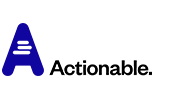How much learning are we throwing away?
Big movements can start as small ideas. On a recent business trip to Melbourne and Sydney, I noticed that the use of reusable coffee cups has become more mainstream—in cafes, out on the street, in elevators, on transit. Not that reusable cups are a new concept to me—I haven’t been hiding under a rock, and I own a number of them myself—what caught my attention was that using (rather than having) a reusable cup is now a practice.
I love the KeepCup story—a brand that started in a Melbourne cafe and has become a global force in sustainability. KeepCup started with a simple mission—reduce the environmental impact of disposable coffee cups from just one cafe in Melbourne, owned by Abigail Forsyth and her brother. In Melbourne, we are proud of our discerning reputation for great coffee. A scan of the reusable cup market revealed a gap—glass and ceramic cups were unattractive, and needed to be warmed to get the milk ration just right, or the espresso needed to be poured into them, destroying the crema on the shot. KeepCup designed a solution that was sustainable, attractive, and preserved the integrity of the coffee—all essential for the discerning market they intended to serve.
Small behavior shifts really add up. KeepCup has diverted billions of disposable coffee cups from landfills since they launched in 2009—which translates into an incredible global environmental impact. What fascinates me most about this is that they didn’t set out to revolutionize our wasteful and disposable culture—they started with one problem, and the shifted behavior of the individuals they served. The cultural shift occurred as a result.
The KeepCup story got me thinking about how much is wasted in the learning and development industry every year. For consultants in this space, the cornerstone offering is in delivering live sessions, one on one coaching, and organization wide strategic implementation. We clarify and care about making the complex simple for clients and their teams, so that they can deliver on organizational objectives. Despite the quality of engagement there is an underlying frustration brewing for consultants and their clients—how to make the learning stick in the workplace. Research shows that more than $70 billion is spent on workplace training annually in the US alone—and yet, without meaningful individual behavior change, a great deal of that investment is wasted, left to languish in the learning landfill.
The consulting landscape continues to change. Clients are looking for different professional learning and development solutions that offer cost effective ways to adapt and thrive in business environments where the expectation is to deliver more with less resources, over shorter periods of time. Classroom learning and live events are always going to be a key part of professional development—which is good news for consultants, despite the fact that the market is crowded and clients are more particular about, and investing less in, large learning initiatives.
The challenge (and opportunity) lies in how to ensure learning transfer. How do you know if the learning—the lightbulb moments that happen in a workshop—actually get applied in day-to-day business activities when participants go back to their desks? How do you measure learning transfer without it being an additional cost to your time and budget? Do you and your client really know the impact learning has back in the workplace?
It would appear that we have a waste issue with learning: I’ll go out on a limb here and suggest that the culture of learning could be described as ‘disposable,’ as the majority of it gets left behind in the classroom. Participants who have just completed a high quality workshop are excited and engaged, ready to do things differently. But intent is not enough: participants who are overwhelmed and burdened by day-to-day demands when they return to their desks quickly fall back on old habits. Their notes from the session get buried beneath more pressing tasks and collect dust, only to be discovered (and likely pitched) the next time they have a minute to clean out their desks.
Organizations continue to focus on having a sustainable footprint from an operational perspective—paper and waste reduction, efficient energy consumption, etc. are continued pursuits—and for good reason. But what about learning sustainability? How can they reduce waste in their learning and training initiatives?
What would it be like if your clients actually had a way of being able to ‘reuse’ learning in the workplace? Not the whole shebang, or a radical overhaul of how all work gets done every time a session is delivered—but what if each person was able to take a splinter of learning, a skill, or an insight back to their work, actioned it regularly, and over time developed a new habit, or shift in behavior that became part of their practice? Collectively, that could add up to enormous (and sustainable) change.
If KeepCup had set out to radically transform everything about the way their customers approached environmental sustainability, they likely wouldn’t be enjoying their current levels of success. And yet, by focusing on one small shift in behavior—bringing a reusable cup instead of grabbing a disposable cup at their favourite cafe—KeepCup has been able to spark significant change. And while I don’t have any hard data to prove it, I suspect that the behavior shift they inspired has had a cascade effect as well. If you develop the habit of diligently bringing your reusable coffee cup with you, eventually you’ll start to look for other ways to decrease your environmental impact, and start using other sustainable products in your daily life as well—reusable water bottles and shopping bags might quickly become a habit.
I think learning needs a KeepCup: a focus on small, incremental behavior changes that add up to a movement.
What if, as a consultant, you could show your clients one focus that resonated most for each participant in a live session and how they are applying that focus back at work? How would your business evolve if you had an effective delivery system for your IP that ensured sustained, measurable behavior change back in the workplace? What would it be like if you could differentiate yourself in the marketplace by having a system that helps your clients focus and apply one key piece of learning from your programs in their day-to-day activities, and incrementally make small, positive improvements in their behavior?
At Actionable that’s what we are focussed on—in an increasingly demanding world, giving people the opportunity to make their learning real in the workplace. Giving them the choice to build small habits to be better, because they want to, not because they are told to.
Let’s face it: when it comes to change, we like the idea, but making the effort is not fun. We love the comfort and ease of how things are in the current state, and would prefer to be teleported to the improved future state. The transition of change is hard, and when it becomes yet another task to accomplish in an already busy day, it’s easy to become resentful and lose motivation.
The current system of learning application is like that—inspired at first, but the day-to-day realities of practicing something new and unfamiliar becomes difficult. We are challenged by time, and as adults we don’t like failing—we want to get it right the first time—so it’s easy to give up. And let’s not kid ourselves on individual care factor: when there is a lack of senior leadership buy-in and leading by example (don’t get me started…), it’s certain that time, energy, and attention is wasted.
The KeepCup idea was to address a concern at a local level—they didn’t set out to change the world or create a movement—and yet they tapped into a social conscience. Without having to make significant changes to their routines, people know that the habit of using their KeepCup is a small action that over time continues to make a difference, both to them personally and to the world we live in. In the same way, we have the opportunity to value learning application with a system of consistent small actions—just like a KeepCup.
As KeepCup Founder Abigail Forsyth says: “many small acts will make a phenomenal difference.”



